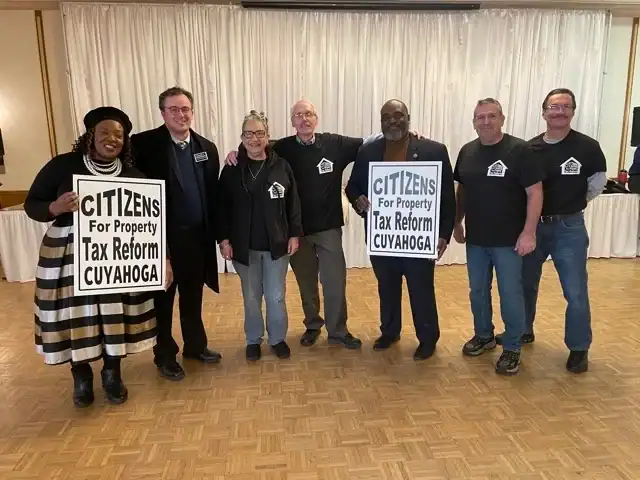Staff Writer
Lawmakers, auditors, activists and voters are clashing over sweeping changes to Ohio’s property tax system as the 2025 election approaches.
Ohioans face a growing property tax problem as rising home values drive up tax bills, putting pressure on homeowners statewide. In response, lawmakers, county officials and grassroots activists are proposing major reforms to overhaul the system.
One of the most significant efforts comes from House Republicans, who have introduced the Property Tax Relief NOW Act. The bill promises $3.5 billion in tax relief by capping the amount school districts can collect when property values rise, preventing automatic increases without voter approval.
It would also create a new tax credit for homeowners living in districts already at the 20-mill floor and expand homestead exemptions for low-income seniors, disabled veterans and surviving spouses of first responders. The plan also calls for tighter oversight of county tax budgets to ensure tax authorities don’t build excessive reserves, according to the Ohio House of Representatives.
Rep. David Thomas, R-Jefferson, one of the bill’s co-sponsors, emphasized the urgency of reform: “Ohio’s property taxpayers need relief now. They have seen outlandish spikes in their property taxes while they have not seen their incomes grow and while they have seen their expenses rise,” he told State News.
Rep. Bill Roemer, R-Richfield, who chairs the House Ways and Means Committee, called it “bold legislation that will have a significant impact on property tax reform,” from the official press release issued by the Ohio House of Representatives.
Auditors’ Proposals and Grassroots Efforts
County auditors across Ohio are also advocating for reforms. One proposal suggests modifying how the Tax Commissioner conducts property tax sales assessment ratio studies.
Specifically, the bill would require the commissioner to work alongside local elected officials and average the past three years of a county’s property values, rather than using only one year to calculate property taxes.
Grassroots organizations are mobilizing to support these changes. The Ohio Coalition for Equitable Taxation is organizing community forums to educate homeowners about the proposed reforms and gather public input. They argue that the current system disproportionately affects low-income residents and seniors on fixed incomes.
State Rep. Jennifer Gross, R-West Chester, has expressed support for these initiatives, emphasizing the need for transparency and fairness in the property tax system. In a recent statement, she highlighted the importance of community involvement in shaping tax policies that directly impact residents, according to the Ohio House of Representatives.
Bipartisan Proposals and Concerns About Elimination
While Republicans lead the charge on property tax reform, bipartisan efforts are also underway. The 70 Under 70 plan would freeze property taxes for homeowners over 70 with annual incomes below $70,000. The proposal, co-sponsored by Reps. Dani Isaacsohn, D-Cincinnati, and Thomas Hall, R-Madison Twp., aims to help seniors on fixed incomes remain in their homes.
At the same time, a grassroots movement led by Citizens for Property Tax Reform is pushing for a constitutional amendment to eliminate property taxes statewide. The group is gathering signatures in hopes of placing the measure on the November 2025 ballot. Critics warn that eliminating property taxes could significantly impact public services, especially education.
Legislative Criticism and Future Outlook
The Ohio House has introduced multiple bills aimed at property tax reform, including the Property Tax Relief NOW Act, which proposes $3.5 billion in tax relief by capping school district collections and expanding homestead exemptions.
Additionally, the Joint Committee on Property Tax Review and Reform has released 21 recommendations, including expanding homestead exemptions, implementing a property tax deferral program, and allowing counties to use a three-year average for property valuations.
However, some lawmakers express concerns about the potential impact of these reforms on local services. State Rep. Terrence Upchurch, D-Cleveland, warned that eliminating property taxes without alternative funding mechanisms could defund critical services like schools and safety forces.
As debates continue, the future of property tax reform in Ohio remains uncertain, with various proposals under consideration and stakeholders voicing differing opinions on the best path forward.





